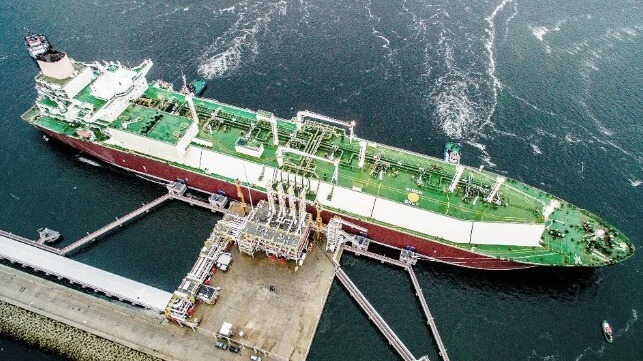Qatar Sees Little Chance of Replacing Russian Gas With LNG in Europe

Qatar's energy minister said Tuesday that there is little chance that overseas LNG producers will be able to backfill Europe's natural gas supply if Russia turns off the taps, confirming the predictions of many energy analysts.
“Russia [provides] I think 30-40 percent of the supply to Europe. There is no single country that can replace that kind of volume, there isn’t the capacity to do that from LNG," energy minister Saad al-Kaabi told Reuters at a conference in Doha. "Most of the LNG are tied to long-term contracts and destinations that are very clear. So, to replace that sum of volume that quickly is almost impossible . . . The divertible volume is probably 10-15 percent [of all exports]."
After Russia began the early stages of a new invasion of Ukraine on Monday, NATO countries have begun imposing sanctions measures in response. Germany has halted Gazprom's Nord Stream 2 gas pipeline project, and the United States has imposed sanctions on a small number of Russian individuals, banks and merchant ships. If the conflict escalates, analysts are concerned that Russia might retaliate by cutting its gas sales to Western Europe - a step it has never before taken.
The White House has been in discussion with LNG suppliers in an effort to secure alternative sources for its NATO allies. However, Europe's LNG receiving terminals are already largely full, topped up by a boom in shipments from the United States, and they can only process liquefied natural gas back into gas for the grid at a limited pace. Germany may be in a particular bind: it has no LNG receiving terminals and depends on Russia for more than half of its gas supply.

that matters most
Get the latest maritime news delivered to your inbox daily.
Consultancy Rystad Energy is confident that U.S.-sourced LNG could help bridge the gap in the case of a more limited supply disruption - for example, the shutdown of the gas pipelines through Ukraine, which carry about one-quarter of Russia's natural gas shipments to Europe. Still, filling even this smaller gap would be a logistical challenge and would come at a higher price, Rystad said.
"Western Europe’s regasification capacity was operating at 100 percent last month, and spare capacity to accommodate a future increase in import volumes is minimal. Poland and Lithuania have only a smaller amount of additional LNG import terminal capacity that could be utilized," said Rystad Energy in a recent update.
